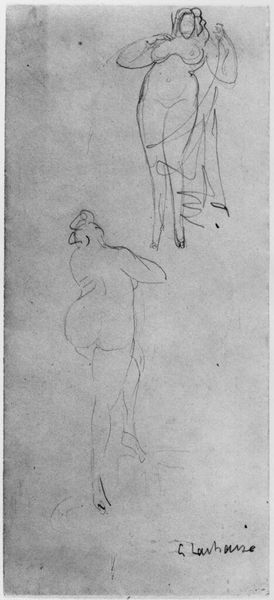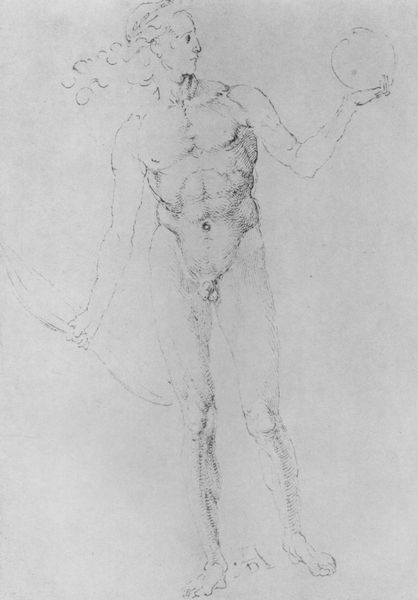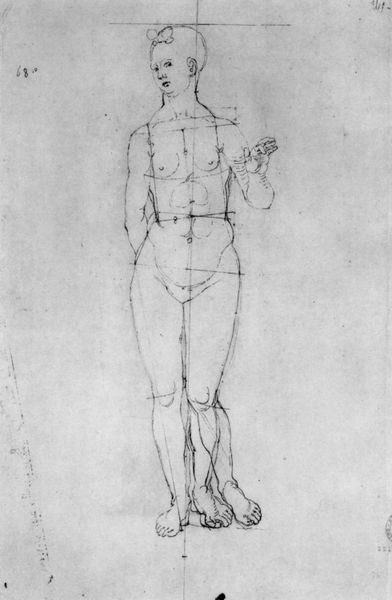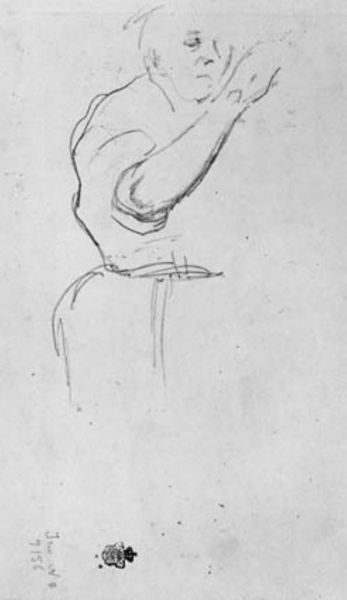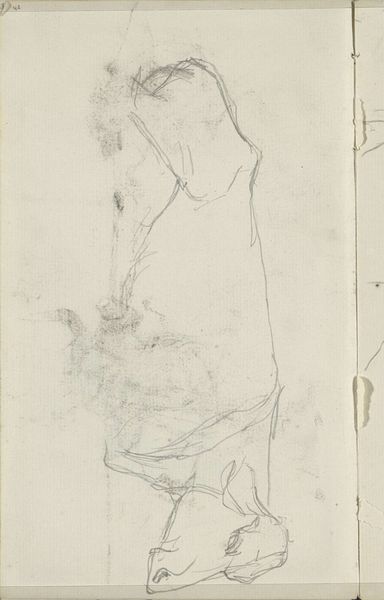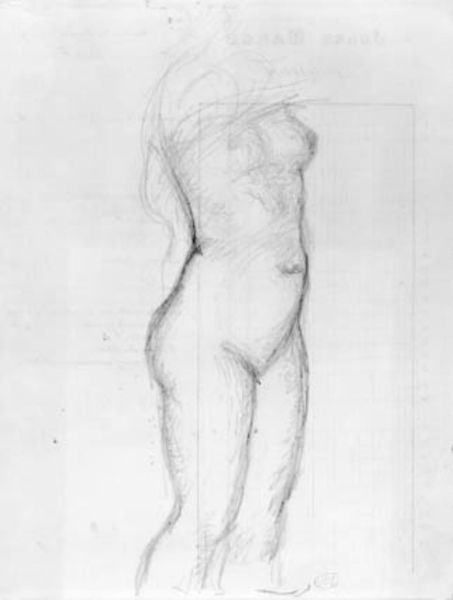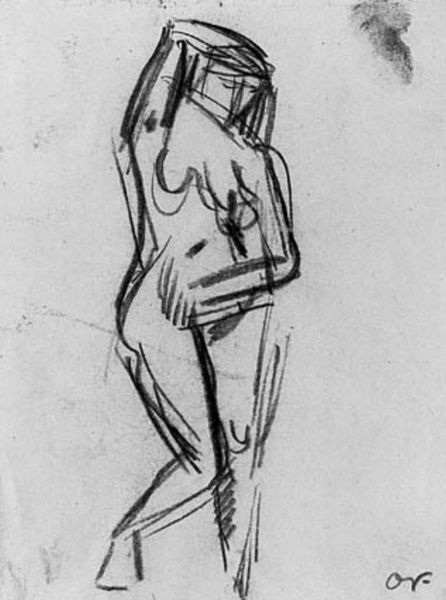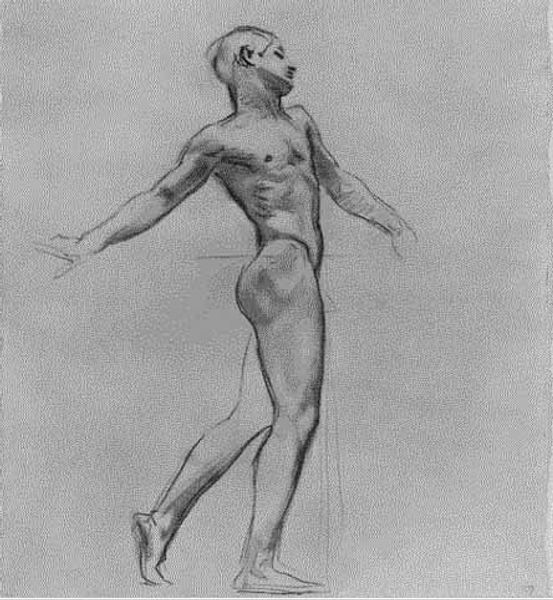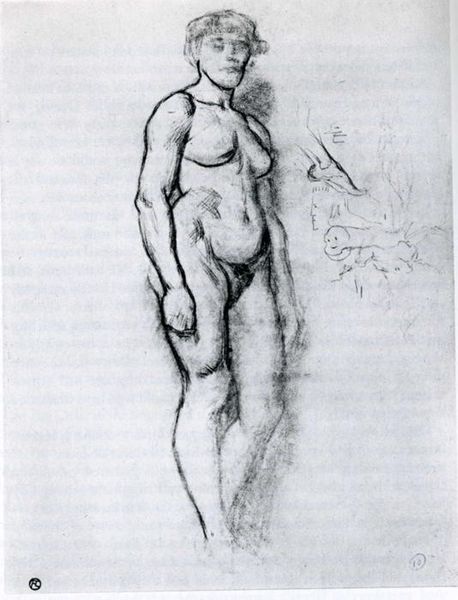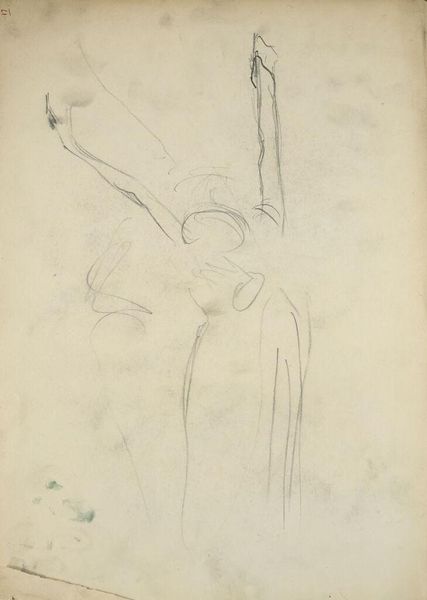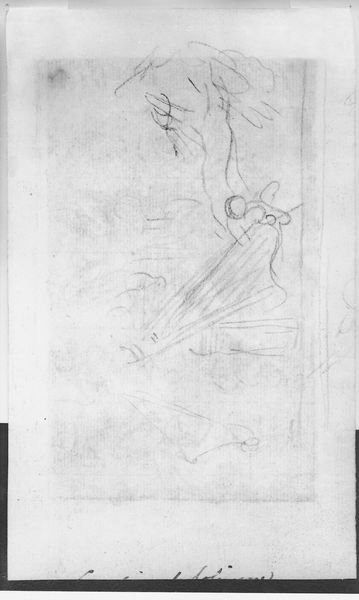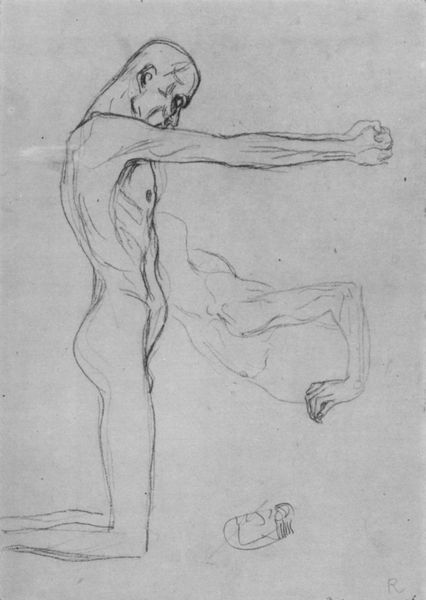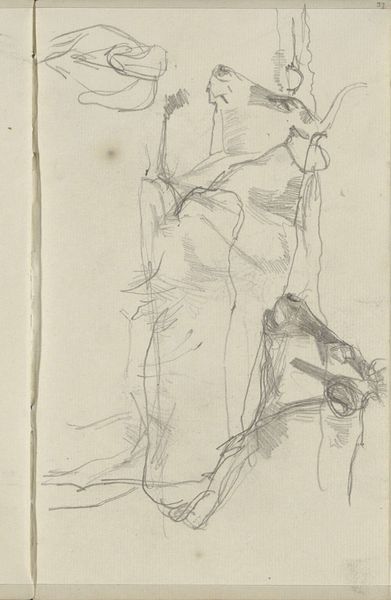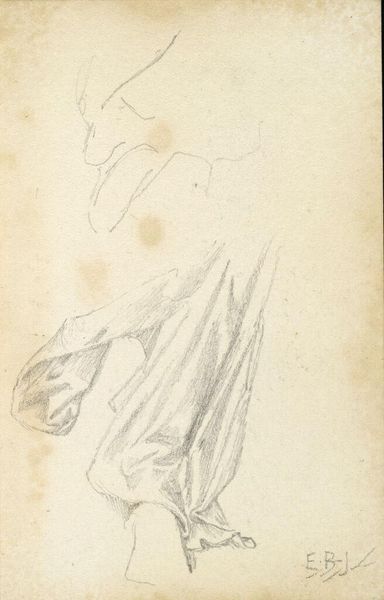
drawing, pencil
#
pencil drawn
#
drawing
#
figuration
#
11_renaissance
#
pencil
#
history-painting
#
academic-art
#
italian-renaissance
#
nude
#
christ
Copyright: Public domain
Editor: This is Albrecht Dürer’s "Study of a Body of Christ," a pencil drawing. The figure’s upward gaze is so compelling; what do you see in this work beyond its formal qualities? Curator: Dürer, living during the Reformation, positions the suffering body within a shifting religious landscape. This study is not just about anatomical accuracy; it’s about the politicized body, a symbol of faith undergoing intense scrutiny and challenge. Editor: Politicized, how so? Curator: Consider the context: challenges to religious authority, the rise of humanism. Dürer, through his detailed rendering, seems to be reclaiming the body, making it a site of both divine suffering and human resilience. Does the exposed, vulnerable flesh evoke a particular narrative for you? Editor: It does make me think about the artist's humanity and vulnerability. Also, who this person was matters, even if it is an imagined scene. What do you think it tells us about societal views? Curator: Precisely! In the nude Christ, rendered with such acute attention to form, it asks us to confront both religious ideals and the lived experiences of the time. It serves as a lens through which we view not only Renaissance artistic techniques but also social dynamics. Editor: I hadn't considered the figure within this context. It sheds new light on this figure and the purpose of the drawing. Curator: Art always participates in a wider cultural dialogue, challenging us to confront our assumptions about gender, power, and identity. Editor: Absolutely, it offers us a deeper reflection and appreciation of this art, as well as art history as a whole.
Comments
No comments
Be the first to comment and join the conversation on the ultimate creative platform.
